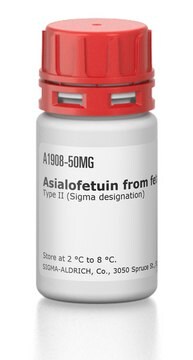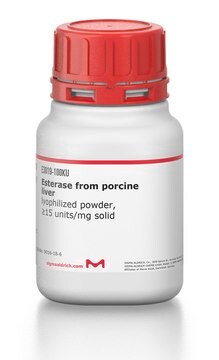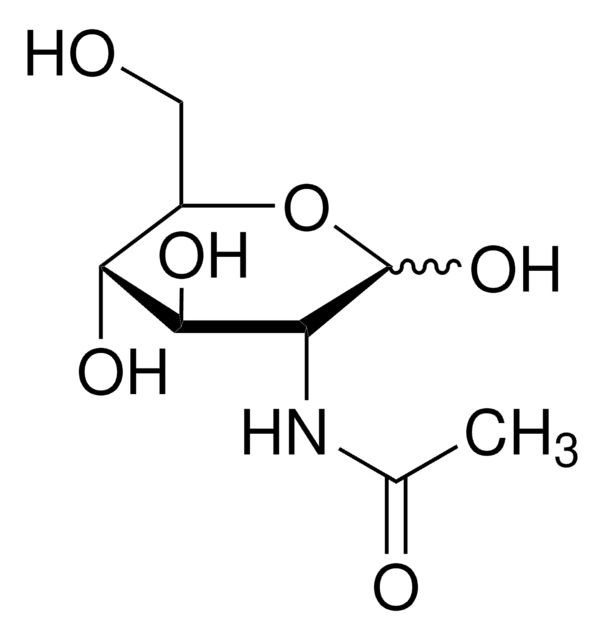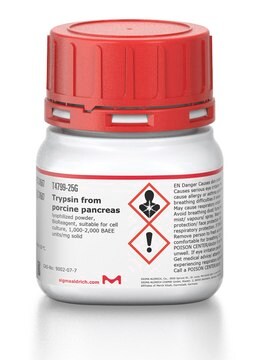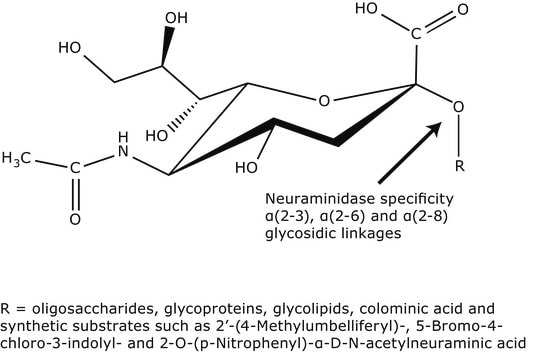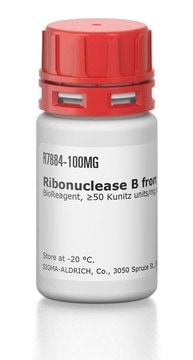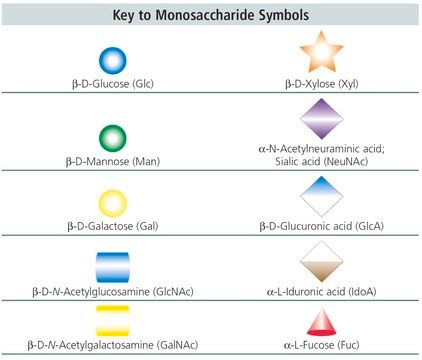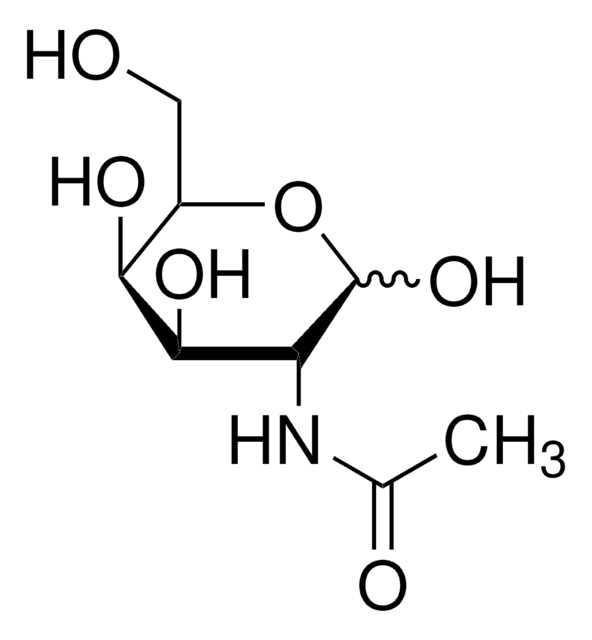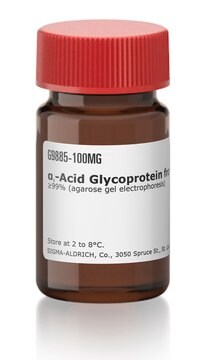A4781
Asialofetuin from fetal calf serum
Type I (Sigma designation)
Synonyme(s) :
Asialofetuin
About This Item
Produits recommandés
Source biologique
bovine (calf) serum
Niveau de qualité
Type
Type I (Sigma designation)
Forme
powder
Impuretés
salt, essentially free
≤0.5% N-acetylneuraminic acid
Solubilité
0.85% sodium chloride: soluble 1 mg/mL
Température de stockage
2-8°C
Vous recherchez des produits similaires ? Visite Guide de comparaison des produits
Description générale
Application
- to quantitate the plant Ricin toxin′s B subunit (RTB) lectin activity in β-phaseolin signal peptide (P)–proinsulin gene (INS)–RTB plants by enzyme-linked immunosorbent assay (ELISA)
- quantitate VP7:RTB fusion protein in transformed potato tissues by ELISA
- as a glycoprotein substrate to measure the receptor-binding activity of recombinant RTB and NSP490–RTB fusion proteins
- to study the nature of the interaction between ferritin and the placenta
Actions biochimiques/physiologiques
Notes préparatoires
Code de la classe de stockage
11 - Combustible Solids
Classe de danger pour l'eau (WGK)
WGK 3
Point d'éclair (°F)
Not applicable
Point d'éclair (°C)
Not applicable
Équipement de protection individuelle
Eyeshields, Gloves, type N95 (US)
Faites votre choix parmi les versions les plus récentes :
Déjà en possession de ce produit ?
Retrouvez la documentation relative aux produits que vous avez récemment achetés dans la Bibliothèque de documents.
Les clients ont également consulté
Notre équipe de scientifiques dispose d'une expérience dans tous les secteurs de la recherche, notamment en sciences de la vie, science des matériaux, synthèse chimique, chromatographie, analyse et dans de nombreux autres domaines..
Contacter notre Service technique

